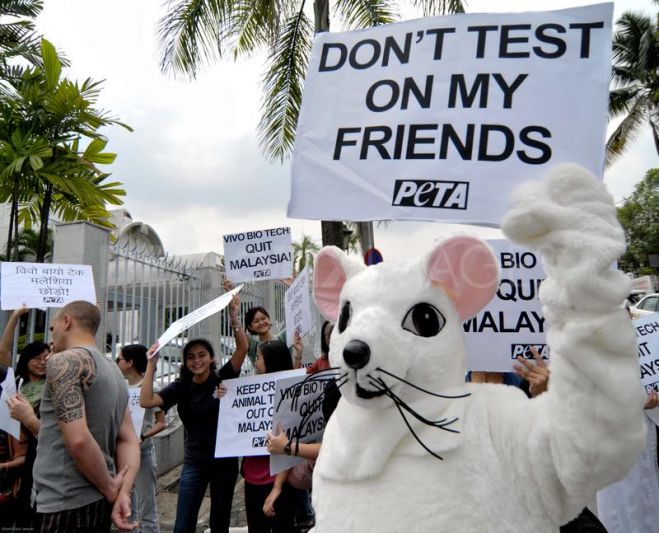The following literature review is part of a series for World Vegan Month. Other essays can be accessed by visiting the essays catalog.
Harold A. Herzog Jr. 1993. “‘The Movement is My Life’: The Psychology of Animal Rights Activism.” Journal of Social Issues 49 (1): 103-119.
I used a qualitative research approach to investigate psychological aspects of involvement in the animal rights movement. Interviews were conducted with 23 rank-and-file activists, focusing on cognitive and emotional aspects of involvement with the movement, concomitant lifestyle changes, effects on interpersonal relations, and the happiness and well-being of the participants. Three main themes emerged from these interviews. First, there was a surprising degree of diversity in attitudes and behavior of the activists. Second, animal rights activism usually entailed major changes in lifestyle: almost all interviewees strove to achieve consistency between their ideals and their actions. Third, there were several parallels between an involvement with the animal rights movement and religious conversion. The potential for increased communication between the animal protection and scientific communities is discussed.
Hal Herzog has a large body of research on the identity politics of Nonhuman Animal rights activism. The article highlighted here is about 20 years old and relies on a limited sample (23 persons living in the U.S. South), but it nonetheless offers a useful overview of movement demographics.
Herzog finds that many of these activists experienced profound attitude and behavior changes upon joining the movement. He also reports a measurable tension between reasoned argument and emotions (some stick to rational logic, but most activists engaged emotions to some extent).
Most activists rejected violence from their tactics and were motivated by a strong desire to spread the message by educating the public and participating in demonstrations. All considered themselves vegetarians (many of whom continued to eat chickens and fishes), and over half were vegan. Most felt they were morally superior in some way, what Herzog defines as “the belief one has discovered a truth of which others are not yet aware.” All but one were members of professionalized organizations (namely PETA). Several were living with partners who shared their beliefs, but many were living with those for whom it created considerable conflict. Most found that friends and relatives were largely supportive.
Overall, activism seems to have mixed results as far as life happiness. In many ways it is a fulfilling calling, in other ways, it means exposure to a lot of painful knowledge and frustrations with structured oppression.
Readers can learn more about the psychological consequences of anti-speciesist activism in my 2016 publication, A Rational Approach to Animal Rights.
This essay was originally published on The Academic Activist Vegan on November 12, 2013.



